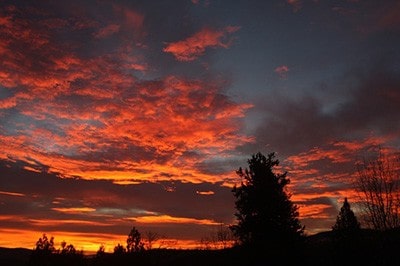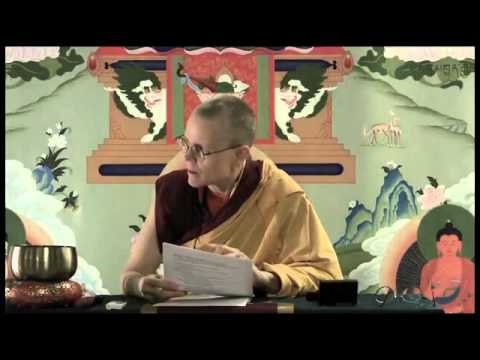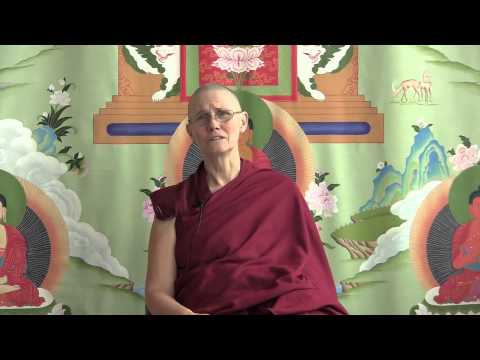Grieving the Sandy Hook tragedy

Jonathan Owen, now ordained as Venerable Losang Donyo, wrote this just after hearing of the Sandy Hook Elementary School shooting in Newtown, Connecticut on December 14, 2012. Venerable Thubten Chodron comments.
Jonathan’s first reactions
Today I recall these words of H.H. the Dalai Lama:
Violence does not accord with our basic human nature, which may lead you to wonder why all sorts of violence become news while compassionate acts seldom do. The reason is that violence is shocking and not in conformity with our basic human nature, whereas we take compassionate acts for granted because they are closer to our nature.
Now for an empathy chat with myself, non-violent communication style—Are you feeling sad? Do you need some empathy?
Yes, I’m sad. I’m needing hope and harmony. I’m angry because I need sincerity and integrity.
And I’m feeling guilty because I need to contribute, to make our world a place where no one could sink to this. I’m ashamed because I need to stop fueling the habits that contribute to people feeling disconnected and angry. I’m embarrassed and concerned because when I hear of tragedy, I don’t react with a natural heartfelt response, but need to fabricate some feeling of concern.
I’m confused because I need understanding of the choked giggles and diverted gazes and deeply weathered sustained gazes and the “my so-and-so lives such-and-such distance from the school” and the “Why…? How…? What’s become of the world?” And I’m disappointed in myself because I want my feelings to have some reason behind them, but I think these ones are utter nonsense.
And I see that we’re all trying so hard, but we’re nincompoops! I’m frustrated when I hear about evil because I need meaningful words that heal, not abstractions that superficially console.
I’m sick of hearing about national tragedies and then having my first reaction be, “What about all the people we’re killing constantly? What about the 23 million people killed in the 44 wars currently taking place in the world? What kind of message are we sending ourselves when we kill someone and then dance in the streets? What do we expect?”
I need acceptance. I need a capacity to feel for all of these 23 million, and the 28, and the 20, and even the one—the one who’s guilty. I need love. For all of them and all of us.
I’m heartbroken and I’m needing empathy. And I feel empathy coming from the whole world and going out to the whole world. And I’m grateful and touched because this fills my need for beauty and togetherness. But I’m scared because I want compassion to be the basis of human interaction and I can only weep thinking how this won’t last.
Today, a broken heart … broken but fused together with a billion other broken hearts, whirling a stunning display of love into perpetual orbit around our sunken heads. This open, sensitive, courageous heart. I’ll be looking around today with a keen eye to see about the truth of the Dalai Lama’s statement—that compassion is our basic human nature.
Venerable Thubten Chodron’s comments
Jon, thank you for your honest sharing of your feelings. When tragedies happen, it’s natural to have a tumbling flow of changing emotions, some which feel right, others which we don’t like. Accept these emotions as arising in your mind, and then slowly look at them more closely. Especially look at the thoughts lying behind the emotions: the thoughts about how the world should be, expectations of ourselves and others, and judgments about how we should feel. Be careful of the “shoulds” and expectations—they distance us from the reality of the moment and get us stuck in our heads.
Instead, get in touch with your heart—the sorrow for the children, the teachers, the killer, the country, our human predicament, the universality of suffering in all realms of cyclic existence. From this sorrow, let the determination to be free from suffering arise. Let compassion for yourself and others arise. Cultivate a bodhisattva’s long-term view that knows all sentient beings can attain liberation and awakening, but it’s going to take a while for each one of us to create the multitude of causes that bring that about. Accept the reality that patience and fortitude are required, and let yourself experience the joy knowing that it’s possible for each sentient being to attain full awakening because each one has the Buddha nature—the basic nature of the mind is pure and the defilements have not entered into the nature of the mind. Strengthen your own resolve to practice the path and to benefit others here and now, even in simple ways.
Venerable Losang Donyo
Losang Donyo was born in Brooklyn, NY in 1987. He had the remarkable fortune to learn under a consummate scholar-practitioner of the pre-1959 generation of Tibetans, Namgyal Khensur Gen Wangdak, starting in 2003 while living in Connecticut. After training under the caring guidance of Ven. Thubten Chodron and the Sravasti Abbey community from 2010-2012, he moved to India where he studied basic Tibetan language and introductory Buddhist logic and philosophy at Sarah College for Higher Tibetan Studies, Dharamsala. After receiving novice ordination from Ganden Trizur Rinpoche Lobsang Tenzin, he transferred to Sera Jey Monastery in south India, where he is currently engaged in the Geshe studies program. He enjoys leading courses and creating learning materials for English-speakers to learn the Nalanda Tradition of debate and logic.


